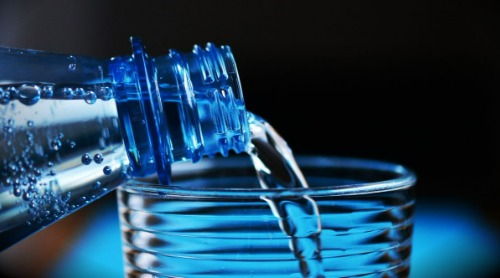THIS IS HOW STERILE FILTRATION IS CHANGING THE INDUSTRY

In today’s society, people typically trust that the food and beverages they take home are free of bacteria and pathogens. However, without the proper filtration systems in place, it can be very easy for unwanted contamination to occur during production. This is where sterile filtration becomes critical to the food and beverage industry.
Food manufacturing plants are often warm and humid environments, which is the perfect condition for microbial growth. To prevent this, sterile filtration is used by manufacturers to ensure their products remain free of any bacteria. This type of filtration can work in a variety of ways, including air filtration, sterile gas filtration and the direct filtration of products. The sterile filtration process has significantly impacted the industry, vastly lowering the opportunities for bacteria and contaminants to grow. Some examples of its impact include:
The Dairy Industry
Contamination is a huge problem in the dairy industry because the nutrients from dairy products lead to the rapid growth of bacteria, causing large amounts of products to be discarded and wasted. In this situation, sterile filtration plays a crucial role in significantly decreasing the chances of microbial growth. It works by filtering the air of any airborne organisms that may be introduced from gas applications throughout the production process. By eliminating contact with airborne pathogens, products will remain free of contaminants and ready to be shipped to consumers.
Sterile Air Filters
In the food and beverage industry, the processing and packaging of products often requires compressed air to push and propel products, as well as mixing and cutting ingredients. However, compressed air can easily be contaminated with compressor oil, water, condensate, pipe scale and rust. Although most compressed air systems have their own means of filtering, they are often not strong enough to keep bacteria and mold from growing under the conditions of the facility. Sterile air filters are necessary for keeping contaminants out of products and purifying the air that consumer products are exposed to. This will preserve the quality of products, taste, appearance and shelf life of food.
Carbonated Soft Drinks
Carbonated soft drinks represent a large and diverse group of beverages that vary widely in product type and packaging. With the increasing variety of soft drinks being produced, there are many risks for microbial contamination during production. Micro-organisms may be present during the carbonation process, depending on where the CO2 is supplied from. If it comes from a fermentation source, it may contain a high level of viable micro-organisms.
For carbonated beverages, especially carbonated water, contamination can be catastrophic to the product, company and consumer. Sterile filtration is critical in removing microbial from CO2 during the carbonation process to ensure a sterile, uncontaminated beverage for consumers.
Consumers place a lot of trust in manufacturers to ensure the food and beverages they are consuming are free of bacteria, microbial and any contaminants that have the potential to cause harm. With sterile filtration technology, manufacturers can ensure their products will represent the quality their customers are expecting and are free of contamination.
Want to learn more about sterile filtration?
Give us a call at 1.800.333.7519 or contact us online to speak with an ACI representative today.

